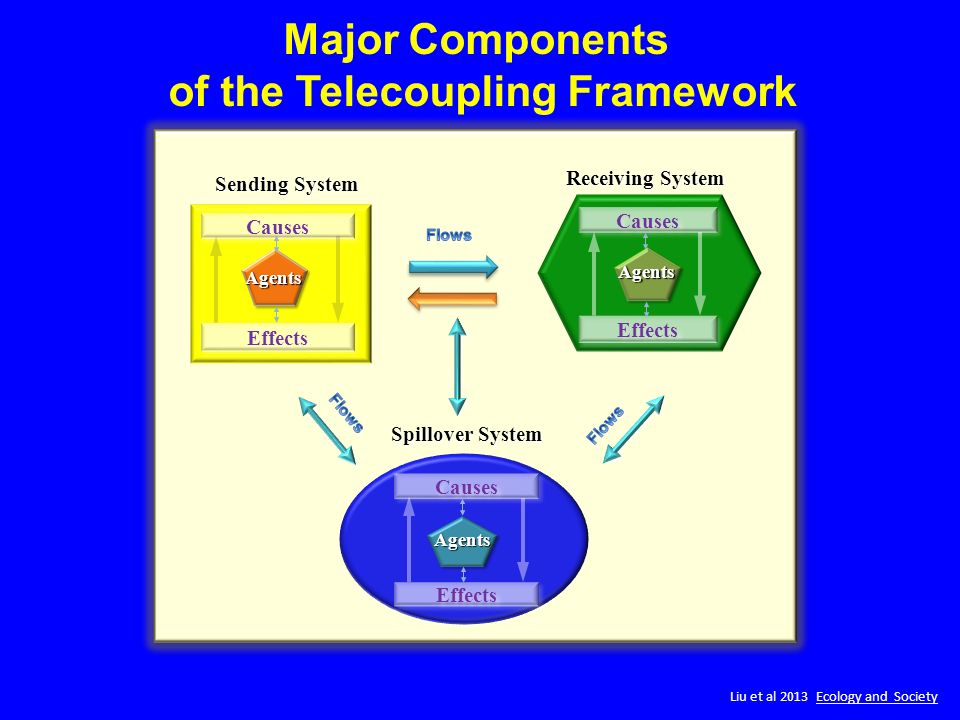About
Telecoupling is a new avenue of research that enables natural and social scientists across various disciplines to understand and generate  information for managing how humans and nature sustainably coexist.
information for managing how humans and nature sustainably coexist.
“We need an integrated umbrella framework that would capture all different kinds of socioeconomic and environmental interactions among coupled human and natural systems over distances,” said Jianguo “Jack” Liu, director of the Center for Systems Integration and Sustainability at Michigan State University. “That will help scientists more systematically understand connections and feedbacks between different places.
“That will also help policy makers to develop more effective policies to protect the environment, conserve the natural systems, and benefit the people worldwide.”
Telecoupling research explores the novel and faster ways of connecting the whole planet -- from big events like global climate change and natural disasters to daily occurrences like tourism, trade, migration, pollution spread, flows of information and financial capital, and invasion of animal and plant species.
Stories tracking telecoupling's evolution
"Telecoupling” explains why it’s a small (and fast) world, after all
Telecoupling pulls pieces of sustainability puzzle together
When the world's hyperconnectivity impacts sustainability
World’s challenges demand science changes – and fast, experts say
Dealing with the spillovers along sustainability’s path



 Print
Print Email
Email